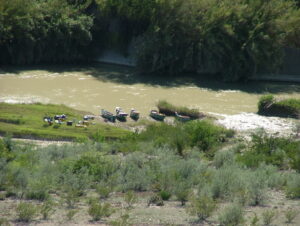The Texas House last week passed House Bill 2827 (DeWayne Burns, R-Cleburne), which would eliminate the requirement for individual permits for concentrated animal feeding operations (CAFOs) in the Bosque River watershed and replace them with standardized general permits.
[Under general permits, the public would no longer be formally notified and given the opportunity to submit public comment on new or amended authorizations for individual dairies, a process that can lead to administrative hearings.]
See the full story at the Waco Tribune-Herald.
The North Bosque River, an impaired waterbody, has been an ongoing success story of stakeholder- and agency-led water quality improvement measures for over two decades. Those measures have included a site-specific permitting system that requires enhanced nutrient management plans for CAFOs in the North Bosque River watershed including phosphorus effluent limits, the formation of the North Bosque River Work Group, and the implementation of a Total Maximum Daily Load (TMDL) program for the watershed, just to name a few. The new House Bill 2827 would require the Texas Commission on Environmental Quality (TCEQ) to rewrite the TMDL. The TCEQ made an analysis in March of the proposed bill and noted that it would conflict with ongoing work to improve water quality for the impaired watershed.
See how your State Representative voted on this bill and let them know how you feel with an email.
Click here to identify your representative.

